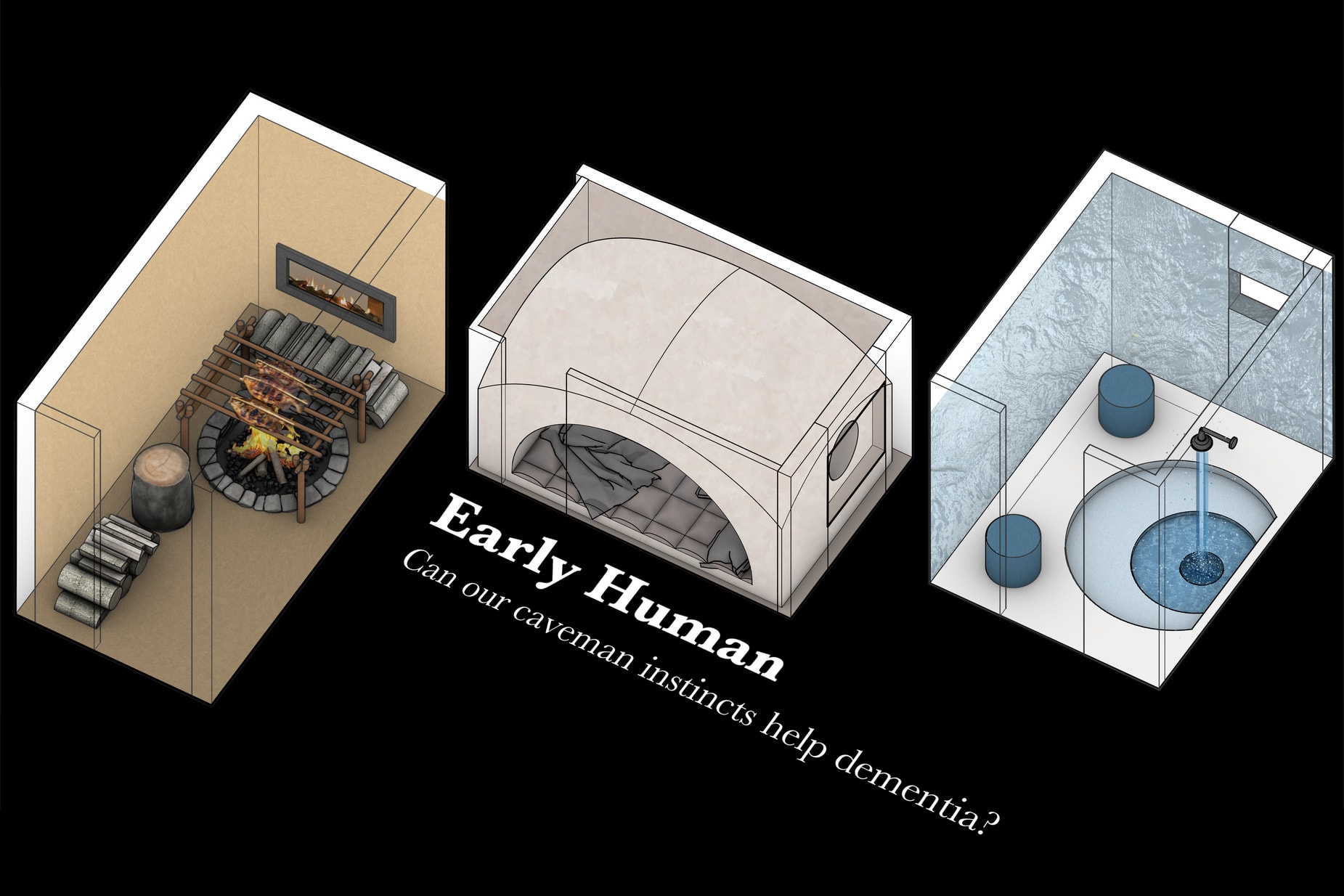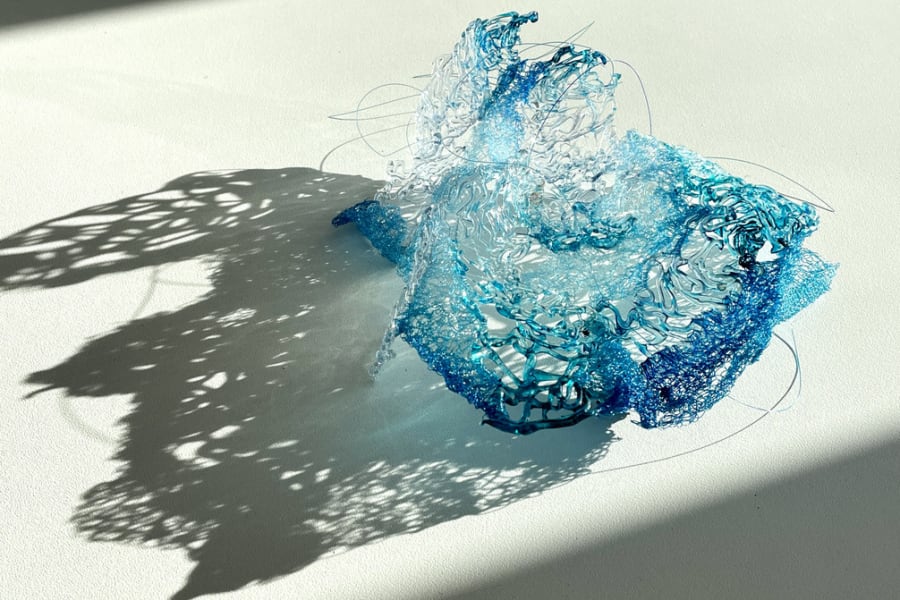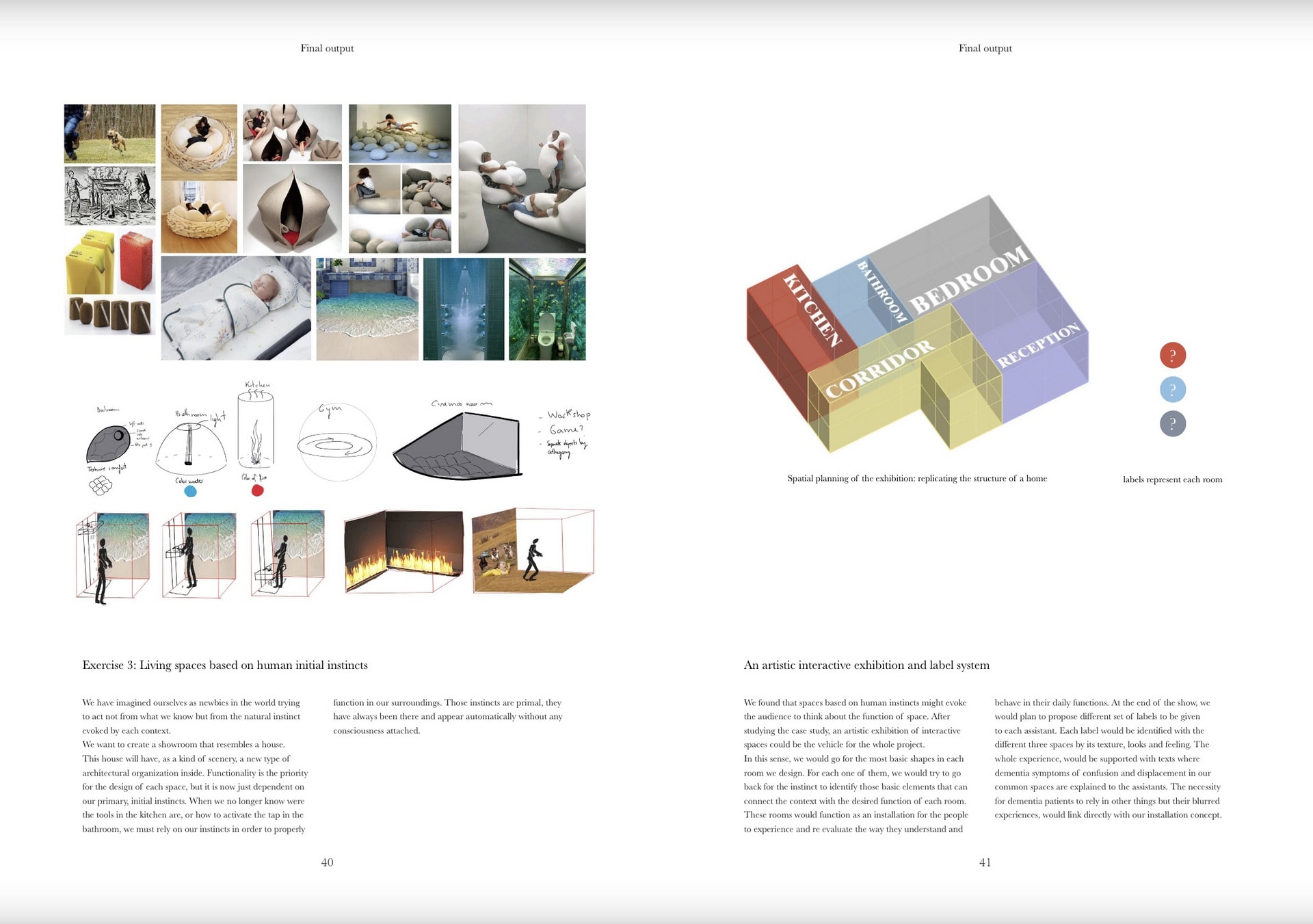In this project, we have approached the theme of caring by focusing on dementia as a main topic of discussion. From there, we have gone through several discussions exposing our own experiences with this matter. Thanks to our lived experiences with dementia, we reached an inspiring example we could take our research from. The daily tasks and their execution have been our main point of focus during the development of this project. We have done thorough research, not just about dementia and its symptoms, but regarding the mechanisms that act in any routinary task. We have learned so much about the sequences and the way our brain process and reacts to them. By contrasting our discoveries with the way dementia affects the patients, we pushed ourselves to change positions and try to really experience the consequences of the illness. With this project, we want to overcome any preconceived ideas we had about dementia, ignoring stereotypes and toxic social judgements over the topic. At the end of our process, we focused on understanding better which are the clues as humans, to react and perform in our daily life context. It is not just about the tasks anymore, but about the context in which they take place. How do we get to experience, understand, and function in those given scenarios, such as a kitchen, a bedroom or a bathroom; these became the focus, of our final output.
An artistic and interactive installation is the final output of our work. With this creation, we aim to express our thoughts on the essential spatial needs of human beings by answering just a simple question: What kind of spaces can we design if we only rely on our basic instincts? Our final product aims to increase awareness on the stimulus that prompts our instincts in order to understand a space, and to empathise with those who, with an illness like dementia, might be forced to rely on those basic imputs to carry on with their daily life tasks. It is a response to people with dementia also through the attached label design that supports the recognition of everyday space. This project has been an inspirational exploration of the care of people with dementia, open to many more possibilities for product design, spatial design and visual design.
Our aim is not to propose a solution to a problem, but to give an open range of thought and artistic expression. This is exactly the opportunity that AcrossRCA gives us by uniting students from different majors. We hope to use our research and thinking about people with dementia to bring more care to the dementia community and to realise our original intention of caring society.






